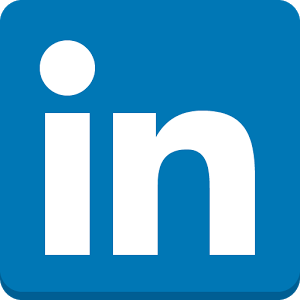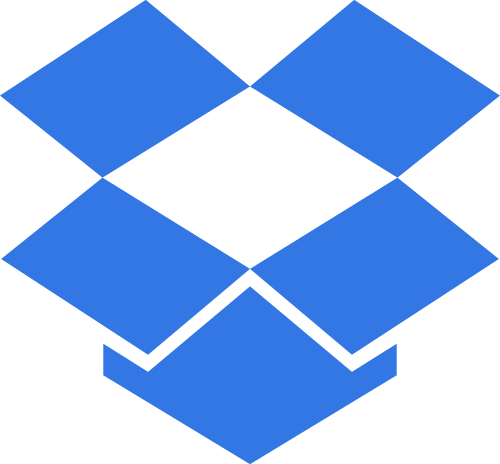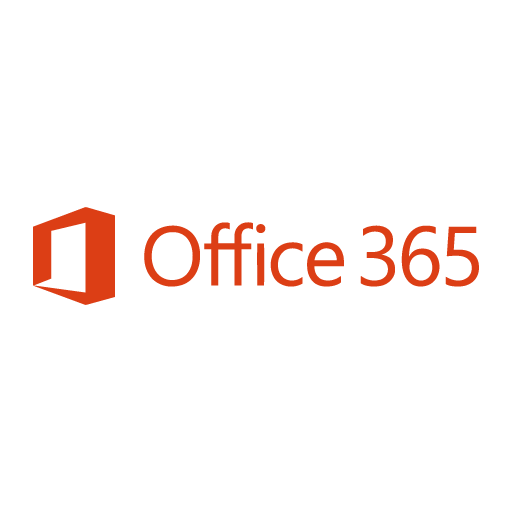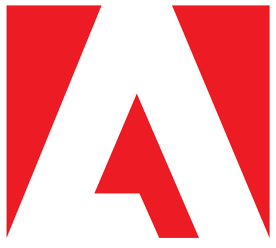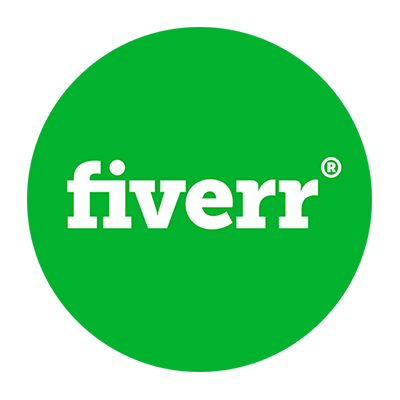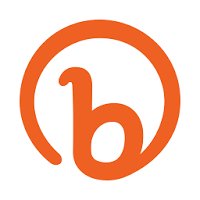On Launching The World’s First Germ-Freezing Waste Bin
Hi, there. My name is David M. M. Taffet and I am the CEO of Petal, LLC, a high-tech consumer goods company whose vision is to create clean, healthy, and sustainable environments for all with a revolutionary new appliance.
Petal is the world’s first zero-odor, germ-freezing waste bin. Our patent-pending technology naturally stops rot, eliminates stink, and halts the spread of germs.
We’re aiming to supplant traditional disposal methods in the diaper, food, incontinence, feminine hygiene, pet, and medical waste verticals while reducing plastic pollution from single-use trash bags.

What's your backstory and how did you get into entrepreneurship?
Early in my adult life, I was told that behind every successful entrepreneur there is a dead parent and a paper route. I fit that bill.
Recognize that all things worth doing happen with and through people, and success will come when you respect and elevate the members of your team.
A few weeks before my third birthday and two weeks before he was scheduled to return home from war for good, my father, a U.S. Air Force fighter pilot, died in the fiery crash of his F-4 Phantom (Vietnam, 1971). This tragic loss indelibly handicapped my childhood.
My mom was traumatized, and I was left to fend for myself. To escape the pain at home, I began working. When I was 8, I started earning money by doing other people’s chores, and then bit by bit I began building small businesses wherein I could leverage the work of others to increase profit. In eighth grade, I became a full-fledged entrepreneur when I took over a significant paper route from a man retiring in his 60s. I staffed the route with friends who I equipped with bikes and baskets.
From then on, I worked and built businesses to help fund my college and law school education. Then, after a 5-year stint as a litigator, I left law and embarked on a life as my boss at the head of numerous companies, often in parallel.
So far in my adult life, I have run a VC fund, an investment bank, and a $100 million buyout fund called The Fossicker Fund. I also built and sold my operating businesses in industries as varied as a coffee shop (which became nationally-ranked) to a nationwide data center to a direct marketing company that purchased fine jewelry, precious metals, and gems.
In addition to running my own companies, I’ve led several turnarounds in disparate geographical locations (e.g. California, Germany, Canada, New York, etc.)--four on behalf of Fortune 500 companies, eight on behalf of public and private entities, and one for a significant nonprofit.

Take us through your entrepreneurial journey. How did you go from day 1 to today?
I officially launched Petal, LLC on February 12, 2020, at the front end of a global pandemic. This is the third time I have launched a business in an environment where many others either closed shop or ceased pursuing new opportunities. The first time was immediately following 9/11 when I acquired and ran data centers across the United States. The second time was during the financial crisis of 2008 when I launched Red Swan—a woman-to-woman gold party company--on The Rachael Ray Show.
Even in the face of global, market, and community unrest, people will still choose to live, and, as a natural byproduct of living, people will consume. Although commerce might be disrupted and/or slowed, consumerism will survive. The key is not to get fixated on the pain of the present, but rather to remain focused on a future of abundance. If one builds a business around a market opportunity that will survive trying times, then one should take advantage of the breach by leveraging the things that have changed while looking to build on what will remain the same.
Because of COVID-19, a significant number of companies and organizations reduced or eliminated their online advertising. This decreased demand reduced the price of online advertising. Also, shelter-in-place orders necessitated the mass adoption of online shopping by previously unindoctrinated populations.
Finally, because stopping the spread of the virus became the world’s top news story, everyone is intimately aware of the need to quarantine germs. Thus, as a direct-to-consumer company focused on sanitary, healthy environments, Petal hit the trifecta:
- Reduced online advertising expenses;
- Increased access to consumers who otherwise would not have shopped online; and
- Fewer educational hurdles around the need to neutralize germs.
Although this is the third company I’ve launched amidst a global crisis, this is the first time I’ve launched with a pre-sale event, more popularly known as crowdfunding. In the past, I would validate the viability of my venture by raising money to fund its development. If sophisticated funds and intelligent people shared my vision, they would demonstrate their confidence by investing cash.
To date, I’ve raised close to half a billion dollars in debt and equity pursuing this path.
In the case of Petal, I learned that there isn’t a strong appetite for investing in seed stage consumer products. Almost everyone insists on the evidence of demonstrable demand and consumer satisfaction, things which do not exist unless you are already manufacturing and selling the product. But manufacturing requires money, which to complete the Catch-22, requires investment. The most feasible route for us required attracting early adopters willing to embrace the Wimpy (of Popeye fame 💪) promise: “I will gladly pay you Tuesday for a hamburger today.”
So, I began searching for a partner recognized for their success in attracting early adopters and orchestrating successful crowdfunding events. That search led me to Rainfactory. Not only did Rainfactory agree to partner with Petal, but for the first time in their 6-year history, they took their entire fee in equity and agreed to invest a significant amount of their cash up front.
With Rainfactory, Petal is making a mad dash to finalize a slew of deliverables in advance of its pre-sale event, tentatively scheduled for launch in September 2020.

How are you doing today and what does the future look like?
I am optimistic about Petal’s future. In coordination with Rainfactory, Petal has conducted lead generation activities that have delivered thousands of emails at a very low cost per lead. Also, Petal has field-tested its social media and secured extensive earned media. We’re seeing high interest in Petal’s product, and more importantly, in its story and brand.
This isn’t to say that everything has been perfect. Petal has suffered almost 5 months of pandemic-related delays stemming from shelter-in-place and social distancing orders. Specifically, we were delayed in our ability to manufacture a camera-ready prototype, safely shoot lifestyle shots, and produce an explainer video—essential assets for a successful pre-sale event.
Rather than bemoan the delay, we capitalized on it by expanding our social reach, enhancing our copy, and launching a new division focused on government contracts, which generally enjoy accelerated procurement periods. Like most of my business pursuits, Petal is moving in parallel to ensure that everyone has a chance to Live Petal Clean.

Through starting the business, have you learned anything particularly helpful or advantageous?
The essential and common thread that runs through all my enterprises is company culture. Achieving business excellence requires a coordinated effort by diverse individuals across distinct operational lines and geographical locales.
Proximity is no substitute for culture. Simply bringing people physically closer will do nothing to bring them together. Company culture is the social glue that unities and aligns a diverse set of individuals to form a cohesive team.
In the past, I could employ face-to-face meetings and professional and social gatherings as venues for infusing the team with warmth, care, and purpose. COVID-19 has precluded proximity. Instead, it has necessitated virtual (as opposed to merely remote) teambuilding and culture creation. Stripped of the ability to travel and to interact in person, I’ve had to rely entirely on video conferences, phone calls, and electronic communications to connect and engage people.
Thankfully, the Petal team has cultivated a happy, winning culture through commitments to:
- Personal chemistry in hires and interactions;
- The commonality of purpose;
- Constant, transparent, and honest communication, both formal and informal.
What platform/tools do you use for your business?
As an early-stage company, we are, of course, a nimble shop by nature. Across our team, we are always utilizing a variety of tools and platforms to meet the needs of the moment.
Microsoft Teams has quickly become the hub for both my individual and company's day-to-day requirements, including chats, sharing, calendaring, tasking, and conferencing. It has become so seamless and integral to how Petal operates that I do not have to think about how to use it; instead, I only have to focus on what I want to accomplish. In the past few months alone, it has added several features that have significantly improved the product.
While we work primarily in a Microsoft environment, we do utilize Slack for chat regularly to support communications with partners and networking across various work functions (marketing, PR, etc).
For social media management, Sprout Social is our go-to solution, but we also employ Tweetdeck and leverage RSS feeds through Feedly to complement our online monitoring and listening strategies. Recently, we have also begun using and quickly become enamored with Penji, an on-demand, illustration design service.

What have been the most influential books, podcasts, or other resources?
I am constantly reading and writing. I find that both activities inform my thinking and increase my awareness. Below, I’ve noted one of my favorite books, a number of my favorite online news sources, and my favorite writing practice.
The Orphan Master’s Son by Adam Johnson (2013 Pulitzer Prize Winner for Fiction)
Books on entrepreneurism often overly romanticize the years of scarcity people suffer while “courageously” building businesses despite obstacles and critics. Indeed, the entrepreneurial path is not for the faint of heart. It requires optimism to see a brighter day, tenacity to move towards that day through difficult times, creativity to navigate unforeseen circumstances, resilience to recover from inevitable defeats, and, most importantly, audacious dreams to fuel the drive forward. Still, the difficulties entrepreneurs encounter and endure are generally surmountable, first-world problems.
The protagonist of The Orphan Master’s Son Pak Jun Do suffers inhumane and unfathomable pain all for the dream of a better tomorrow. His plight will instill in entrepreneurs a deep appreciation for how much one can endure for a dream. The Orphan Master’s Son is a wonderful reminder of human endurance when all too many of us have the privilege to pursue profits while others are simply breathing to live another day, not just in fiction, but in real-time all over the world and right here at home.
Marker and OneZeo - Medium Publications
Two Medium publications that have quickly climbed up my list of must-reads are Marker and OneZero.
The business world and our lives move at warp speed, particularly these days, and I have found both sites to be particularly adept at identifying and speaking to the issues of the day promptly that always seem to resonate, make me smarter, and smile.
Recent pieces on the 'the Motherhood Penalty' for female founders, the $35 for keyboard (not just) for children, the imminent wireless charging disaster, and global bicycle shortage stand out. I also highly recommend Rob Walker's zero-BS takes in Off Brand and Angela Lashbrook's Microprocessing column.
Morning Pages ala The Artist’s Way by Julia Cameron
On LinkedIn, I define myself as a parallel entrepreneur, lawyer, etc., but I view myself first as an artist. My artistic medium is photography. The same year I began working, I picked up my first camera and have rarely put it down since. To date, I’ve photographed in all 50 of the United States, in 53 countries over 5 continents, and hundreds of cities, towns, and territories. I always focus on foreign and/or marginalized communities intending to highlight human commonality and promote understanding across cultures.
As part of my artistic journey, I recently adopted the ritual of writing Morning Pages. Each morning (after coffee of course), I write three longhand pages that reveal, explore, and/or find answers to things that are troubling me. This practice has brought me clarity, opened my heart, inspired curiosity, and fueled my creativity.
I am a better team member and leader because of it, and I recommend it to everyone regardless of whether you perceive yourself as an artist or not.

Advice for other entrepreneurs who want to get started or are just starting out?
Don’t fixate on numbers and dollars. Both should inform you, but neither should drive you. Instead, recognize that all things worth doing happen with and through people, and success will come when you respect and elevate the members of your team. Three concrete steps you can take to up your people game are as follows:
- Lead with a growth mentality focused on helping people rise to their greatest potentials. Then push them beyond their perceived ceilings. Repeatedly. Gently. And always with respect.
- Rely on the process, open communication, and reports to stay micro-informed, but never resort to micromanaging. Trust your team members and maintain a friendly, open-door attitude.
- Eliminate hierarchical thinking by refusing to let people work for you and instead insist on a “with” relationship with EVERYONE, regardless of that team member’s position or station.
Where can we go to learn more?
You can learn what it means to Live Petal Clean™ and join our launch list now at petalclean.com. You can also join our growing community of Petalers on Instagram @LivePetalClean, Facebook, LinkedIn, and Twitter.
As for me, I am most active and accessible via LinkedIn, but can also be found kicking around the web on Instagram @InvisibleManPhotography and Twitter (@DavidMMTaffet).


Download the report and join our email newsletter packed with business ideas and money-making opportunities, backed by real-life case studies.

Download the report and join our email newsletter packed with business ideas and money-making opportunities, backed by real-life case studies.

Download the report and join our email newsletter packed with business ideas and money-making opportunities, backed by real-life case studies.

Download the report and join our email newsletter packed with business ideas and money-making opportunities, backed by real-life case studies.

Download the report and join our email newsletter packed with business ideas and money-making opportunities, backed by real-life case studies.

Download the report and join our email newsletter packed with business ideas and money-making opportunities, backed by real-life case studies.

Download the report and join our email newsletter packed with business ideas and money-making opportunities, backed by real-life case studies.

Download the report and join our email newsletter packed with business ideas and money-making opportunities, backed by real-life case studies.






